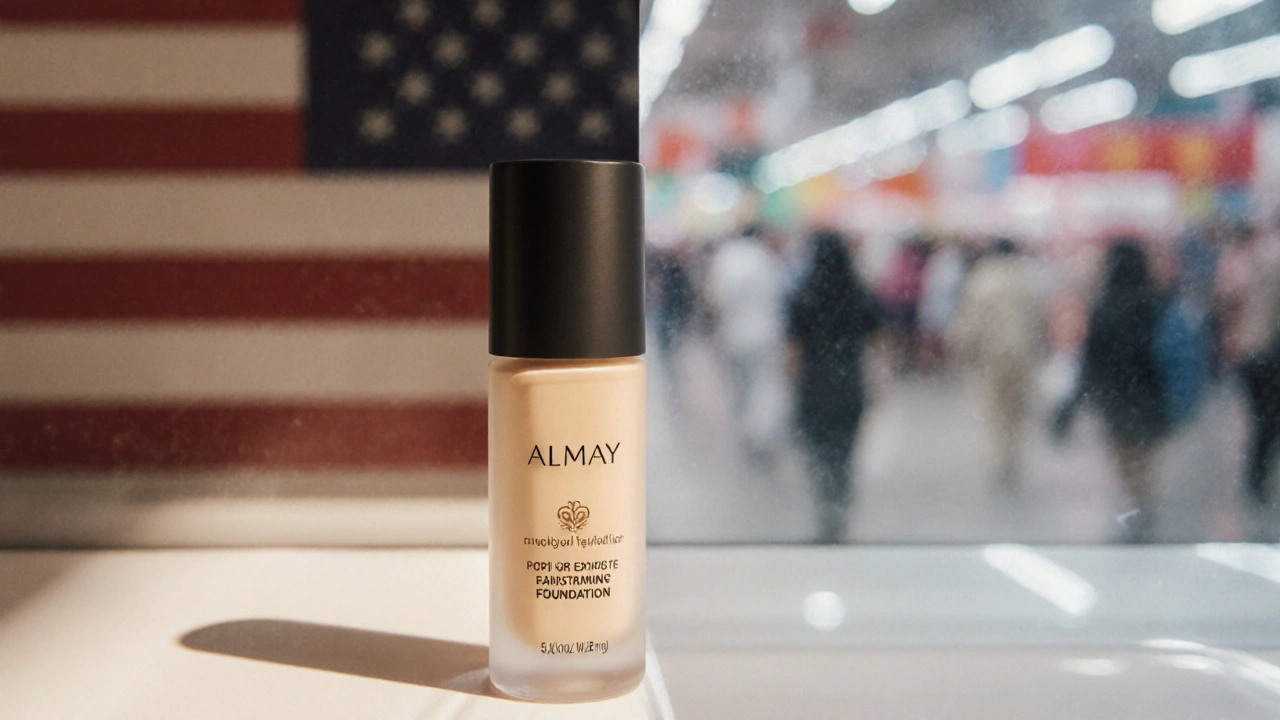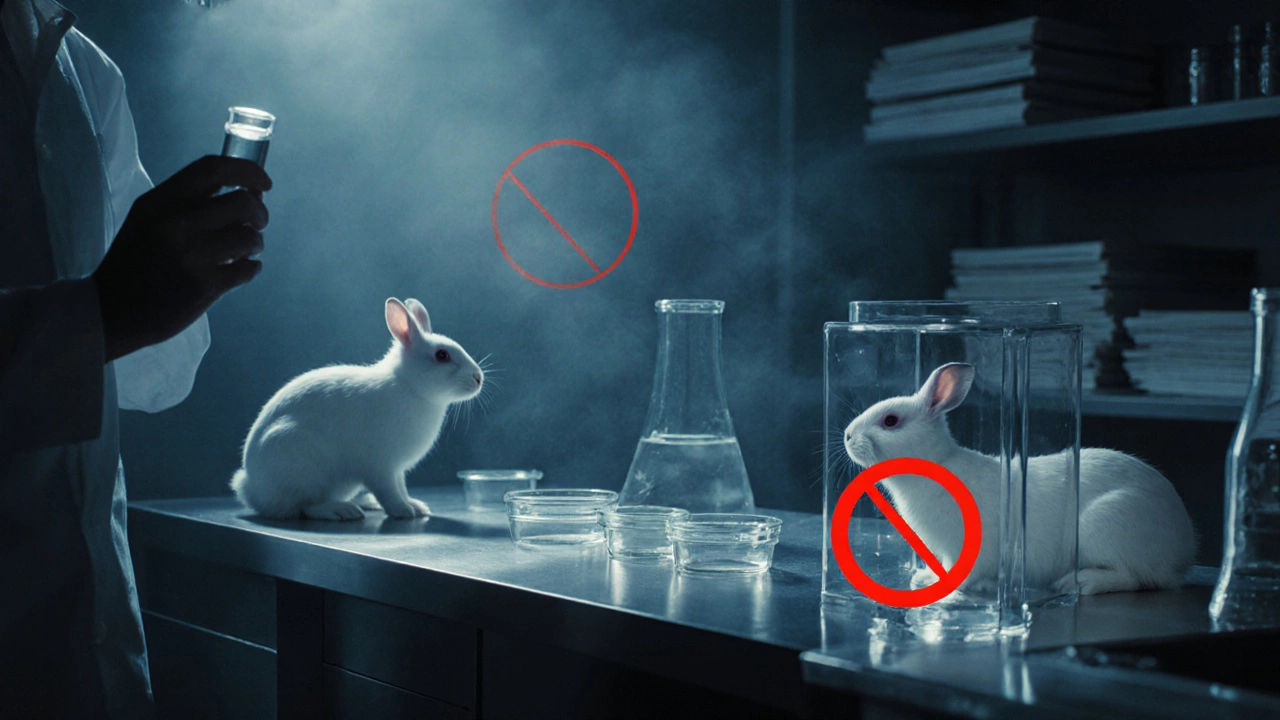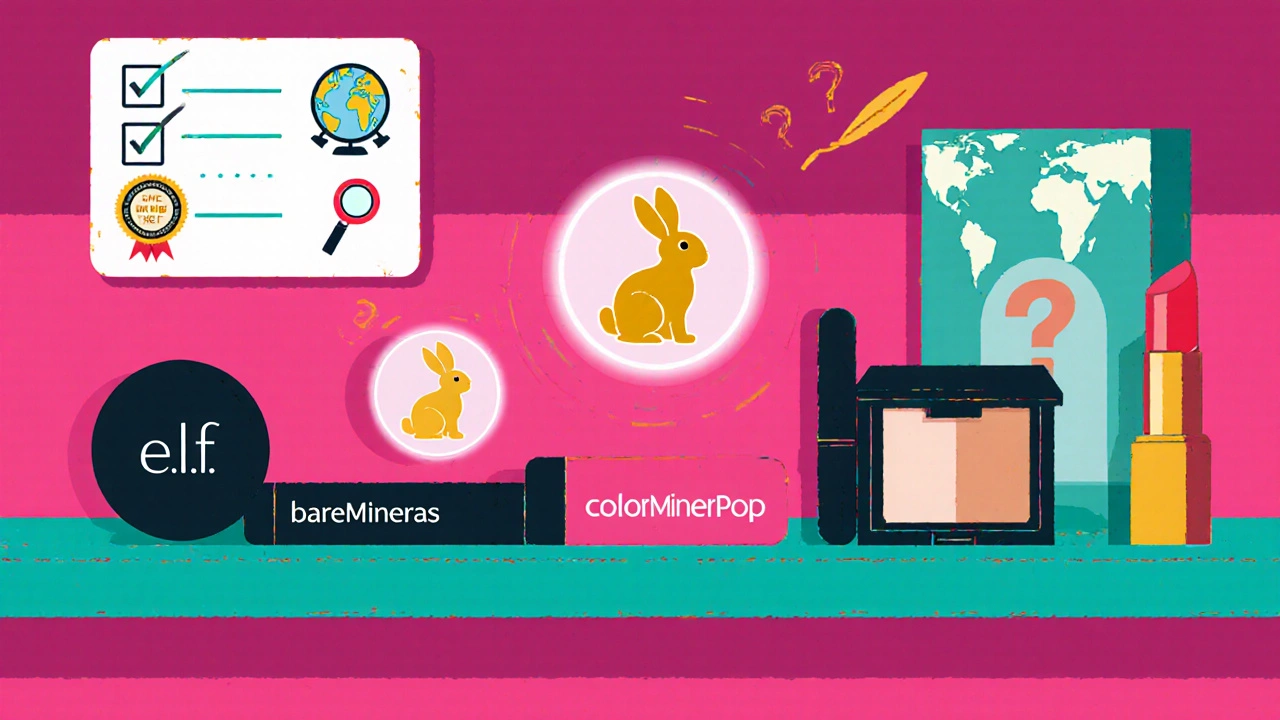Is Almay cruelty‑free? The full answer for 2025
 Oct, 12 2025
Oct, 12 2025
Cruelty-Free Status Checker
Check a brand's cruelty-free status
Enter details about a cosmetics brand to see if it meets cruelty-free standards.
Results
Enter brand information to check cruelty-free status.
How this works: A brand must have third-party certification (Leaping Bunny or PETA) AND not sell in markets that require animal testing (like China) to be truly cruelty-free. Without these criteria, the brand may still test on animals in certain markets.
Key Takeaways
- Almay is owned by Revlon, a company that does not hold any recognized cruelty‑free certification.
- The brand’s official policy states it does not test on animals in the US, but it may sell products in markets that require animal testing, such as mainland China.
- As of October2025, Almay cannot be confidently labeled Almay cruelty‑free without caveats.
- Shoppers can verify a brand’s status by checking third‑party certifications (Leaping Bunny, PETA’s Beauty Without Bunnies) and reading fine print on product packaging.
What “cruelty‑free” really means
When a brand claims to be cruelty‑free, it promises that no animal testing is performed at any stage-formulation, safety assessment, or final product-by the brand itself, its suppliers, or any third parties. To back this claim, reputable certifications such as Leaping Bunny or PETA’s Beauty Without Bunnies require audited proof that animal testing never occurs, even in markets that mandate it.
Without such certification, a brand’s cruelty‑free status is uncertain because many companies comply with local laws that force animal testing for market entry.
Almay’s official stance
Almay’s website states that the brand “does not test its products on animals in the United States.” The wording is specific to the U.S. and avoids addressing testing in other regions. This nuance is critical because the brand’s parent company, Revlon, sells Almay products globally, including in mainland China where mandatory animal testing for cosmetics persisted through 2024, with limited exemptions for certain product categories.
Revlon’s own policy mirrors Almay’s: no animal testing in the U.S., but compliance with local regulations elsewhere. Because Almay does not carry Leaping Bunny or PETA certifications, the brand cannot guarantee that none of its raw materials or finished goods are tested on animals abroad.

Legal landscape: U.S. vs. China and other markets
The United States does not require animal testing for cosmetics, and the FDA’s Cosmetics Rule merely monitors ingredient safety without mandating animal studies. In contrast, mainland China historically required animal testing for imported cosmetics, though a 2021 regulation allowed some non‑animal testing routes for specific product categories. As of 2025, the rule still applies to many color cosmetics, which includes most Almay makeup lines.
Because Almay’s product range largely falls under color cosmetics, any batch shipped to China could be subjected to animal testing by Chinese authorities, regardless of the brand’s internal policies. This creates a loophole that disqualifies Almay from being truly cruelty‑free.
Why certifications matter (and why Almay lacks them)
Obtaining a cruelty‑free certification is a deliberate process. Brands must:
- Demonstrate a written, publicly available animal‑testing policy.
- Provide a full supply‑chain audit confirming no animal testing at any tier.
- Agree to cease sales in markets that force animal testing, or secure alternative testing pathways.
Almay has not pursued these certifications. The primary reasons appear to be market access and cost. Maintaining a cruelty‑free label while still selling in China would require Almay to withdraw those products from the Chinese market-a move that could cut off a sizable revenue stream.
Recent developments (2024‑2025)
In late 2024, PETA released a report ranking major cosmetics brands on cruelty‑free compliance. Almay placed in the “non‑certified” category, noted for “potential testing in China.” The report also highlighted Revlon’s bankruptcy filing in 2022, which led to restructuring but did not alter its animal‑testing stance.
Early 2025 saw a petition on Change.org urging Almay to obtain Leaping Bunny certification. The brand responded with a statement reaffirming its “no‑testing in the U.S.” policy but did not commit to a certification timeline.

How to verify cruelty‑free status yourself
When you pick up a product, look for these clues:
- Certification logos: Leaping Bunny, PETA Beauty Without Bunnies, or EU‑ECHA “No Animal Testing” symbols.
- Ingredient sourcing statements: Brands sometimes disclose that their raw materials are sourced from suppliers that follow cruelty‑free standards.
- Packaging fine print: Phrases like “Not tested on animals” without a certification often signal a marketing claim rather than verified status.
- Company website FAQs: Look for a dedicated cruelty‑free page that lists the markets served and any testing exceptions.
If a brand lacks certification and sells internationally, assume animal testing could occur.
Alternatives that are truly cruelty‑free
For shoppers who want guaranteed cruelty‑free makeup, consider these options, all of which hold Leaping Bunny or PETA certifications as of 2025:
| Brand | Certification | Key Product Types | Notes |
|---|---|---|---|
| e.l.f. Cosmetics | Leaping Bunny | Foundations, lipsticks, eye shadows | Manufactured in the U.S.; no sales in mainland China |
| bareMinerals | PETA Beauty Without Bunnies | Mineral powders, blush, mascara | Parent company Shiseido; sells globally but retains certification |
| ColourPop | Leaping Bunny | Colorful eye palettes, lip kits | U.S. based, avoids markets requiring animal testing |
| Almay | None | Foundation, mascara, concealer | Sold in China; no third‑party cruelty‑free certification |
Quick checklist for cruelty‑free shopping
- Check for a recognized certification logo on the front of the packaging.
- Read the brand’s official animal‑testing policy-look for global statements, not just U.S. claims.
- Avoid products sold in markets with mandatory animal testing unless the brand can prove exemption.
- Use trusted databases like peta.org or leapingbunny.org for up‑to‑date brand lists.
- When in doubt, contact the brand’s customer service for clarification.
Frequently Asked Questions
Does Almay test on animals at all?
Almay states it does not test on animals in the United States, but the brand’s products are sold in markets like China where animal testing may be required by law. Therefore, animal testing could still occur outside the U.S.
Why isn’t Almay Leaping Bunny certified?
Leaping Bunny certification requires a global, audited policy that proves no animal testing anywhere in the supply chain and often means withdrawing from markets that demand such testing. Almay continues to sell in China, making it ineligible for the certification at present.
Is there any difference between "cruelty‑free" and "not tested on animals"?
Yes. "Not tested on animals" often only refers to the brand’s own testing but may not cover suppliers or required testing in certain countries. "Cruelty‑free," especially when certified, guarantees no animal testing throughout the entire production chain.
Can I still use Almay products if I want to stay cruelty‑free?
If absolute certainty is your goal, it’s safer to choose brands that hold third‑party cruelty‑free certifications. If you’re comfortable with the brand’s U.S.‑only claim and understand the potential for overseas testing, you may continue using Almay, but it won’t meet strict cruelty‑free definitions.
Where can I find up‑to‑date cruelty‑free brand lists?
Trusted resources include the Leaping Bunny website, PETA’s Beauty Without Bunnies page, and the Ethical Consumer’s cruelty‑free guide. They regularly update brand statuses as policies change.
